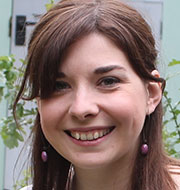 Last week I was at a conference discussing joy at work. This was the same week as the State of Child Health Report was released by the Royal College of Paediatrics and Child Health (RCPCH). Joyful it is not.
Last week I was at a conference discussing joy at work. This was the same week as the State of Child Health Report was released by the Royal College of Paediatrics and Child Health (RCPCH). Joyful it is not.
The report charts the lie of the land when it comes to the UK paediatric workforce. And the land is a bloody great crevasse. In good news, the UK paediatric consultant workforce grew by 7.5% (3718 to 3996 consultants from 2013 to 2015). But that seems to be the only bit of growth, and it will soon be stunted. In the same time period, the number of speciality and associate specialists fell by 12.5%. Applicants for ST1 training in paediatrics fell by 27.5% between 2015 to 2017, from 800 to 580. This record low in applicants, despite a similar number of places meant, that for the first time ever, the college had to re-advertise ST1 posts due to a woeful fill rate of 83% (10% less than the preceding year). And it doesn’t appear that we have a wealth of applicants on the horizon, with a 27.2% fall in the number of F1 doctors planning to apply to paediatrics from 2013 to 2016.
With these figures it is hard not to suggest that paediatrics lacks the appeal it once had. When I started training there were four applicants to one post. I’m not going to harp back to how it used to be, all misty-eyed about competition ratios. But it was different, and I did have a—slightly—easier time.
I was part of the empowered junior movement. I was told that I was the valued eyes and ears of the hospital in the Francis Report. But my eyes are now tired and my ears have frankly heard quite enough.
The acute impact of not having enough staff is exhausting and detrimental to patient care. More fatiguing still is that it has been discussed time and again; hospitals are closing, services are being diverted. In 2015, shortages of clinical staff in the UK resulted in episodes of closure to new admissions by 31% of paediatric inpatient units and 41% of neonatal units. These data don’t even take into account the most worrying trends in staffing from the RCPCH report, and the trends of increasing A&E attendances, and admissions of children in the past two years.
While the acute impact is raw and immediately painful, my bigger worry on reading the RCPCH report is the long-term prognosis. The stripping away of staff will slowly expose the frailty of a service unfit to deliver the care it needs to. The backbone of what we do for patients is based on a body of scientific evidence—but we don’t have the people to spend the time needed advancing that collection. Academics now represent 4.2% of the consultant-level workforce compared with 8.7% in 2016. And with fewer paediatricians entering training it is hard to see how that downward trend will change.
General paediatric and neonatal rotas have an average vacancy rate of 14%. In reality this means 14% more work being taken on by those in post. And something has got to give. It is the insidious chipping away at the time allocated to allow clinicians and health professionals to contemplate additional projects, that I fear will be the ultimate downfall of the healthcare we provide. Some may suggest we are in a time of uphill struggle, so it is all hands on deck until this crisis is over, but this is not over in one day, or one week. This torrent of patients who need slick and immediate care keeps coming and all the “routine” and “non-urgent” tasks for patients not directly in front of you slip to the bottom of a quite impressive list. Audits, reflective learning, quality improvement, research, promoting good public health, reporting concerns adequately; all these good practice measures have less time dedicated to them. What is left is an unintended side effect that hits the entire population who rely on the national health service to keep them well.
Emma Parish is a speciality trainee in paediatrics and current education fellow.
Competing interests: I was a previous editorial registrar at the BMJ, and I am a member of the RCPCH.
